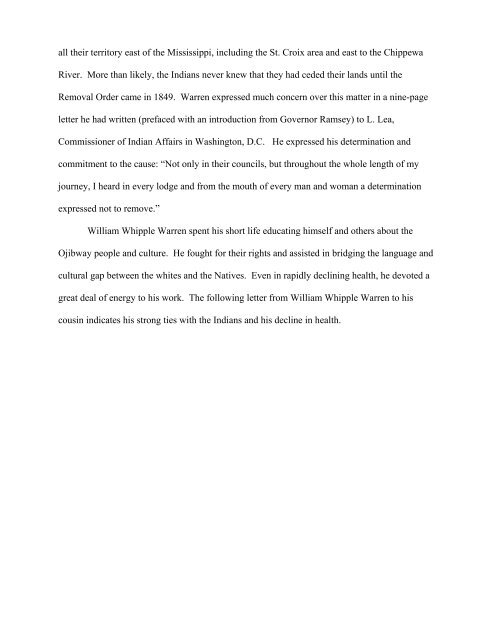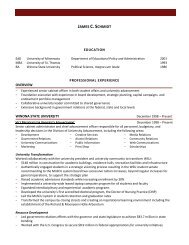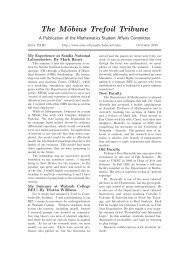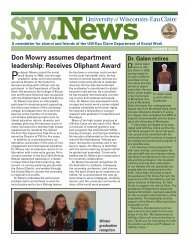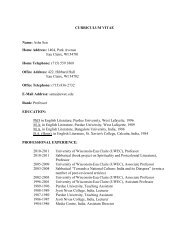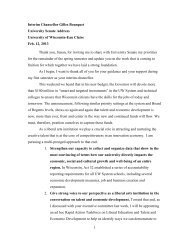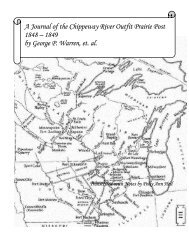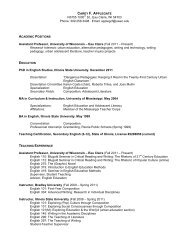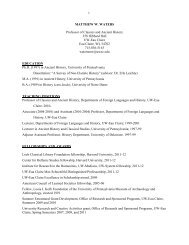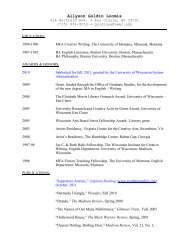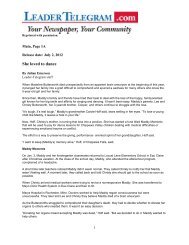Manuscript Project Transcription and Works Cited for Research of ...
Manuscript Project Transcription and Works Cited for Research of ...
Manuscript Project Transcription and Works Cited for Research of ...
You also want an ePaper? Increase the reach of your titles
YUMPU automatically turns print PDFs into web optimized ePapers that Google loves.
all their territory east <strong>of</strong> the Mississippi, including the St. Croix area <strong>and</strong> east to the Chippewa<br />
River. More than likely, the Indians never knew that they had ceded their l<strong>and</strong>s until the<br />
Removal Order came in 1849. Warren expressed much concern over this matter in a nine-page<br />
letter he had written (prefaced with an introduction from Governor Ramsey) to L. Lea,<br />
Commissioner <strong>of</strong> Indian Affairs in Washington, D.C. He expressed his determination <strong>and</strong><br />
commitment to the cause: “Not only in their councils, but throughout the whole length <strong>of</strong> my<br />
journey, I heard in every lodge <strong>and</strong> from the mouth <strong>of</strong> every man <strong>and</strong> woman a determination<br />
expressed not to remove.”<br />
William Whipple Warren spent his short life educating himself <strong>and</strong> others about the<br />
Ojibway people <strong>and</strong> culture. He fought <strong>for</strong> their rights <strong>and</strong> assisted in bridging the language <strong>and</strong><br />
cultural gap between the whites <strong>and</strong> the Natives. Even in rapidly declining health, he devoted a<br />
great deal <strong>of</strong> energy to his work. The following letter from William Whipple Warren to his<br />
cousin indicates his strong ties with the Indians <strong>and</strong> his decline in health.


